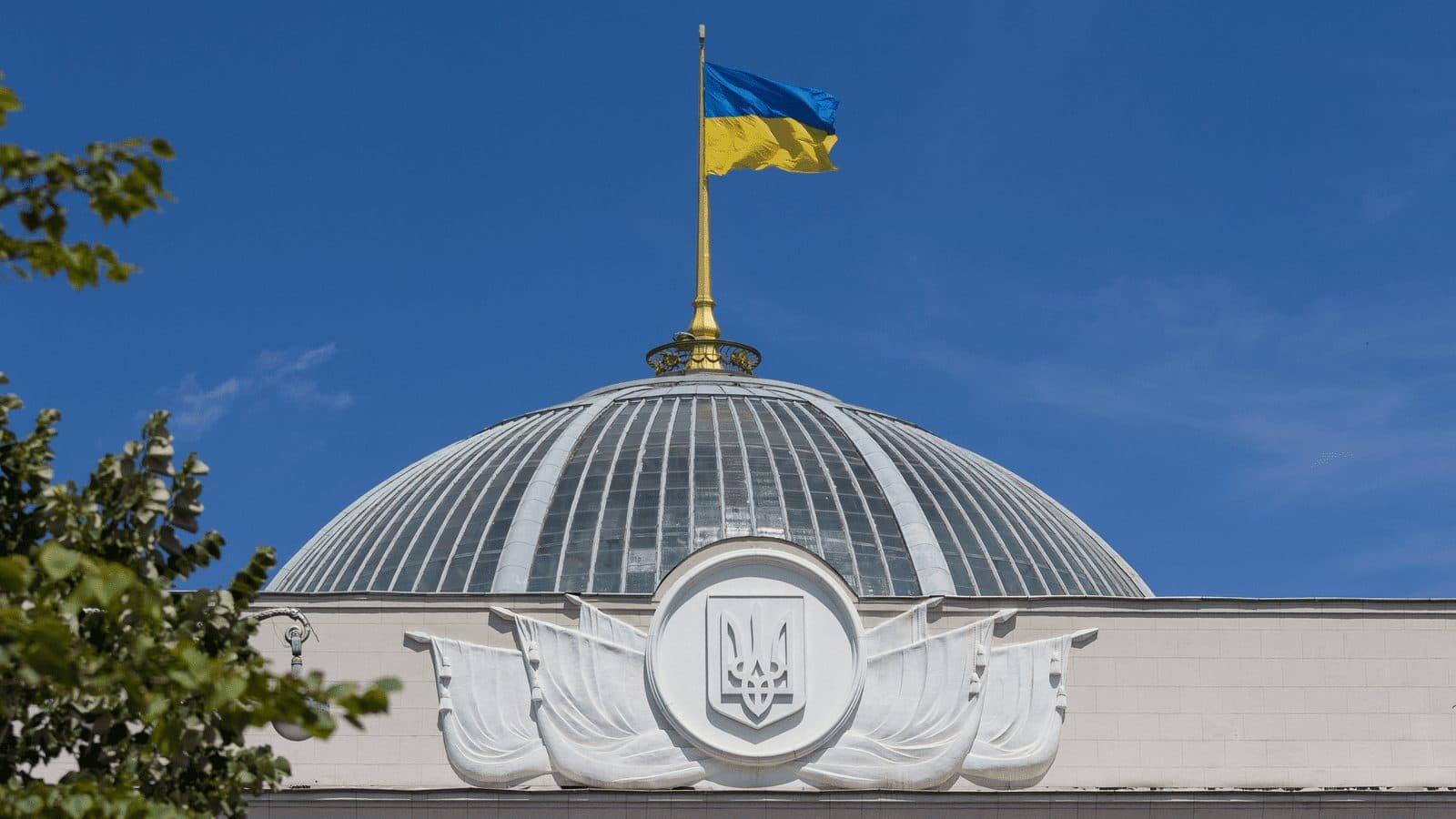Ukraine Passes Law Legalizing Crypto as Threat of War Looms
Ukraine has passed its law “On Virtual Assets,” which recognizes crypto as a legal asset and names an official regulator to oversee activity

Ukraine Parliament in Kyiv.
- Ukraine has passed an amended crypto law that formally recognizes the nascent asset
- A legal market will be established and will have a formal regulator in place to monitor and control crypto
The parliament of Ukraine has passed amendments to its law “On Virtual Assets,” ratifying the eventual creation of a legal market for cryptocurrencies.
The Verkhovna Rada — Ukraine’s parliament — passed its crypto bill with majority support from 272 of its 450 members, according to an official statement. Amendments to the bill, which was first introduced in September, will see the National Commission on Securities and Stock Market installed as the primary regulator for crypto.
“The new law is an additional opportunity for business development in our country,” said Mykhailo Fedorov, Ukraine’s deputy prime minister and minister of digital transformation. “Foreign and Ukrainian crypto companies will be able to operate legally, while Ukrainians will have convenient and secure access to the global market for virtual assets.”
Market participants will also receive legal protection and opportunities to make decisions based on open consultations with government agencies, the minister added. “There will appear a transparent mechanism for investing in a new asset class.”
As part of its role as regulator, the national commission will be responsible for shaping policy, determining the order for the circulation of crypto, issuing licenses to virtual asset service providers and watchdog responsibilities.
Ukraine is also working on changes to its tax and civil codes with the minister’s office, as part of the move to embrace domestic crypto adoption, the government said.
Rising tensions
Ukraine’s amended law comes as Russia has maintained a large military presence in the region, capable of an invasion, according to US President Joe Biden, who reiterated Thursday the former Soviet power had not recalled some of its troops from the Ukrainian/Russian border.
Digital assets, as well as traditional stocks, dropped on news that Russia had reportedly failed to pull back and deescalate. “They have not moved any of their troops out,” Biden said. “They’ve moved more troops in.” Markets have been on a see-saw following President Vladamir Putin’s original comments that his country had decided to pull back troops from Ukraine’s border on Monday.
Tensions remain high. While no one knows for certain whether troops have been recalled or whether it’s a political tactic designed to stall for time, Ukrainian national turned Australian citizen, Maryna Kovalenko, told Blockworks her country would always fight back.
“We have been fighting for independence for decades,” she said. “We will continue to fight.”
Ukraine formally separated from the USSR in 1991 following the union’s dissolution.
Kovalenko, who heads cryptocurrency tax platform Syla in Brisbane, also said Ukraine’s decision to formally adopt cryptocurrency under a legal framework was “progressive” and earmarked her country for future outside investment.
“With this amended law in place, Ukrainians will gain opportunities and exposure for their work in crypto as well as a proper framework for them to build off assurances their projects won’t be kept in the dark.”
Ironically, the crypto development coming out of Ukraine follows on the heels of Russia’s considerations to formerly regulate cryptocurrency as a form of currency into its national economy. The country is weighing up whether to draft new legislation or amend existing laws to oversee crypto as a currency in an attempt to stimy illicit activity and bring tax receipts generated from crypto profit under government control.
Get the news in your inbox. Explore Blockworks newsletters:
- The Breakdown: Decoding crypto and the markets. Daily.
- 0xResearch: Alpha in your inbox. Think like an analyst.






